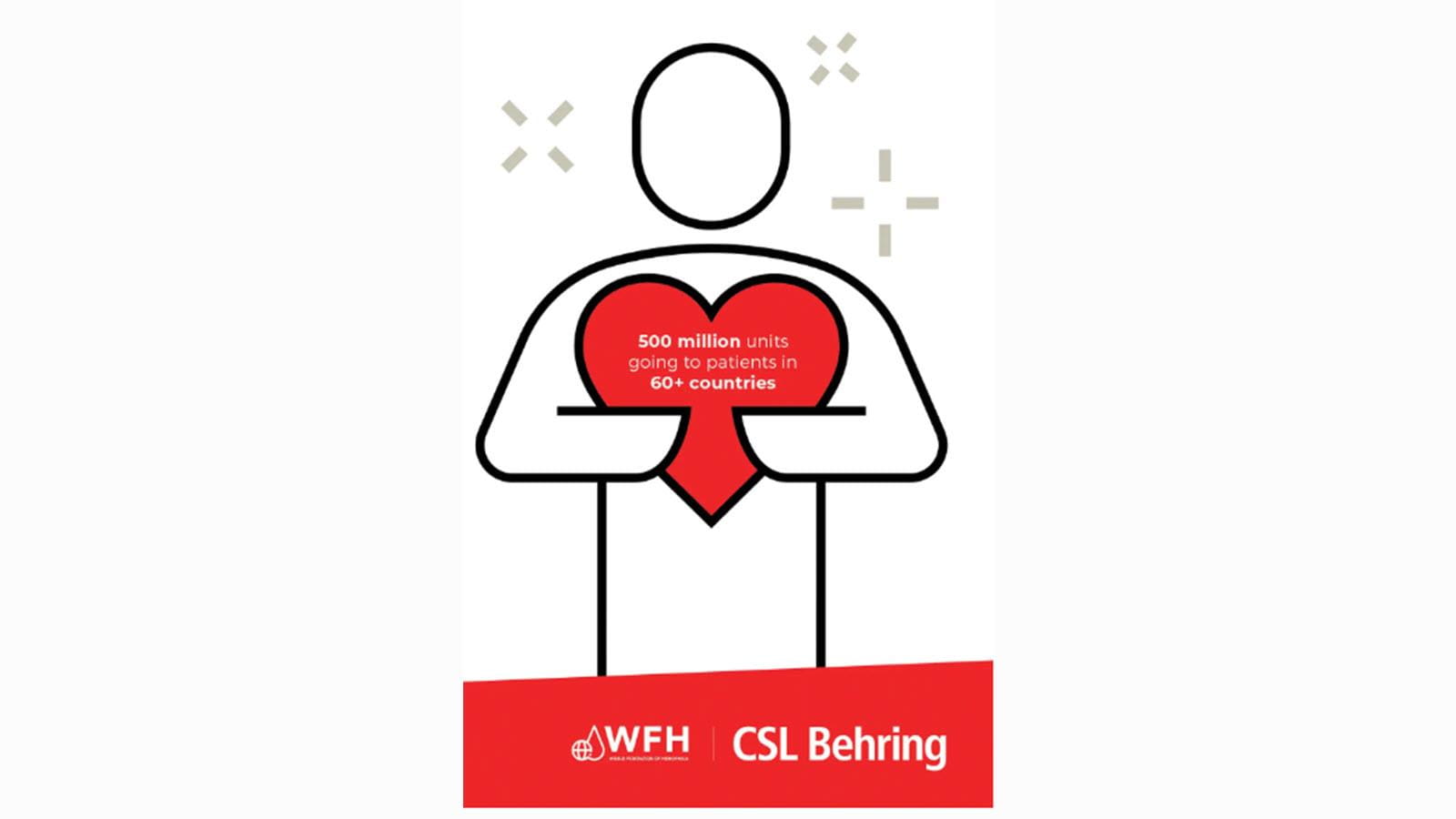CSL recently donated 50 million international units (IUs) of coagulation factor therapy to the World Federation of Hemophilia (WFH) Humanitarian Aid Program, delivering on its promise and making good on a commitment the company made last year to improve access to essential medicines.
This shipment is part of part of broader commitment to donate 500 million IUs of coagulation factor therapy to WFH over the next five years. CSL’s contributions to the WFH Humanitarian Aid program helps change the lives of people around the world who lack access to care for bleeding disorders.
The theme of World Hemophilia Day, celebrated on April 17, is “Access for All.” Learn more about World Hemophilia Day.
Patients often need supplemental coagulation factor, a protein normally found in blood, to avoid excessive bleeding. Without diagnosis and treatment, someone with a bleeding disorder could be at risk of bleeding following an injury or surgery. Spontaneous bleeds in joints also occur, causing pain and trouble with mobility. Prior to innovations in treatment for conditions like hemophilia, patients’ lives were often cut short.
Since its start in 1996, the WFH Humanitarian Aid program has treated more than 25,000 patients in 112 countries. A 2022 report says the donated medicines helped stop 41,700 bleeds, supported 1,400 surgeries and enabled almost 4,000 patients to receive prophylaxis (preventive treatment).
“The objective of the program is to make it possible for people with inherited bleeding disorders to reliably access safe and consistent treatment and care, regardless of their type of bleeding disorder, gender, or location,” the WFH says.
The donation from CSL Behring, a business unit of CSL, includes product manufactured solely to be donated, which means it will have a longer shelf life and can help give patients consistent, reliable access to the treatments they need to prevent bleeding episodes.
The collaboration between CSL Behring and the WFH also supports progress in improving the diagnosis and treatment of bleeding disorders through the WFH’s Global Alliance for Progress (GAP). CSL Behring will provide financial support for logistics costs and training programs designed to address unmet needs for people living with hemophilia in developing countries who are undiagnosed, untreated, or undertreated.
In particular, WFH anticipates that the new CSL donation will result in further progress including putting 150 patients (mostly children younger than 5) on low-dose prophylaxis, improving diagnosis and treatment and increasing capacity for surgeries.



